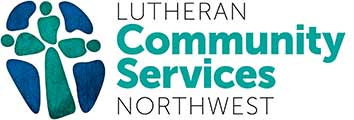Bullies lose power with Youth Partners like Storm on the job
We’ve all heard stories or known incidents of kids bullying kids. Whether physically in the school yard or by cyber bullying on the Internet, the shame and embarrassment a youth feels can be especially crippling for those who already struggle with self-esteem and the complexities of being in foster care.
 As part of Bullying Prevention Month in October, we talked to Storm Kennedy, an LCSNW Youth Partner, who has been with our Tri-Cities district for 18 months. The Wraparound with Intensive Services (WISe) program supports youth ages 13-21 from foster care and group homes in finding strength-based solutions to depression, anxiety and self-harm behaviors. It takes a team approach where a Youth Partner (who is the youth’s advocate), a counselor, care coordinator, parents and school personnel all work together to address the youth’s challenges while keeping that student in the stability of their home.
As part of Bullying Prevention Month in October, we talked to Storm Kennedy, an LCSNW Youth Partner, who has been with our Tri-Cities district for 18 months. The Wraparound with Intensive Services (WISe) program supports youth ages 13-21 from foster care and group homes in finding strength-based solutions to depression, anxiety and self-harm behaviors. It takes a team approach where a Youth Partner (who is the youth’s advocate), a counselor, care coordinator, parents and school personnel all work together to address the youth’s challenges while keeping that student in the stability of their home.
One of every five students report being bullied; actual numbers are likely higher due to unreported incidents. Students who experience bullying are at increased risk for depression, anxiety, sleep difficulties, lower academic achievement, and dropping out of school. Students who frequently bully others and students who report being frequently bullied are at increased risk for suicide-related behaviors.
Storm knows well how bullying can harm young lives. Storm defines bullying as “tearing another person down to make yourself feel good.” Although prevalent as young as 7 or 8 and well into young adulthood, Storm said it’s most common in ages 13-16.
Storm had extensive personal experience with verbal and physical bullying during middle school and high school. Storm lives in Kennewick and grew up in the Tri-Cities area.
It helped to have a natural instinct for dealing with the situation. “I confused them by not showing any emotion,” Storm said. “I learned at a young age about boundaries without knowing what that name meant.”
“When they didn’t get a highly emotional reaction, my bullies tended to move on elsewhere. At the same time, I collected all their names and turned them into the school counselor,” Storm said. “Young people must know that they can’t be expected to handle this tough situation alone. They should talk to a parent, a counselor, teacher or other adult.”
“With my clients, I try to help them think logically and not run on emotions. We work on setting boundaries for not engaging or reacting to their abusers with a clear message that they will not allow others to do this to them.”
“Kids who are bullied often feel beaten down by life. I let them know that the strongest thing they can do is stand up for themselves and get others involved. It’s not weak and it’s not a snitch. They are taking a stand for themselves.”
If we witness bullying — whether we know the youth or not – Storm says it’s our responsibility to call them out on it, gently but firmly. “We need to give a clear, consistent message that it’s not appropriate and won’t be tolerated.”
“We can all do our part to help youth grow up with confidence, strength and a strong self esteem.”
Fun Facts About Storm: Likes to collect taxidermy and has a stuffed bat in work office. Has 30 tattoos. Is getting a Masters in Forensic Psychology and wants to work with prison populations. Lives on a farm with two dogs, five goats and 20 chickens – all of which take a large amount of cleaning up after.
Resources on Bullying:

0 Comments